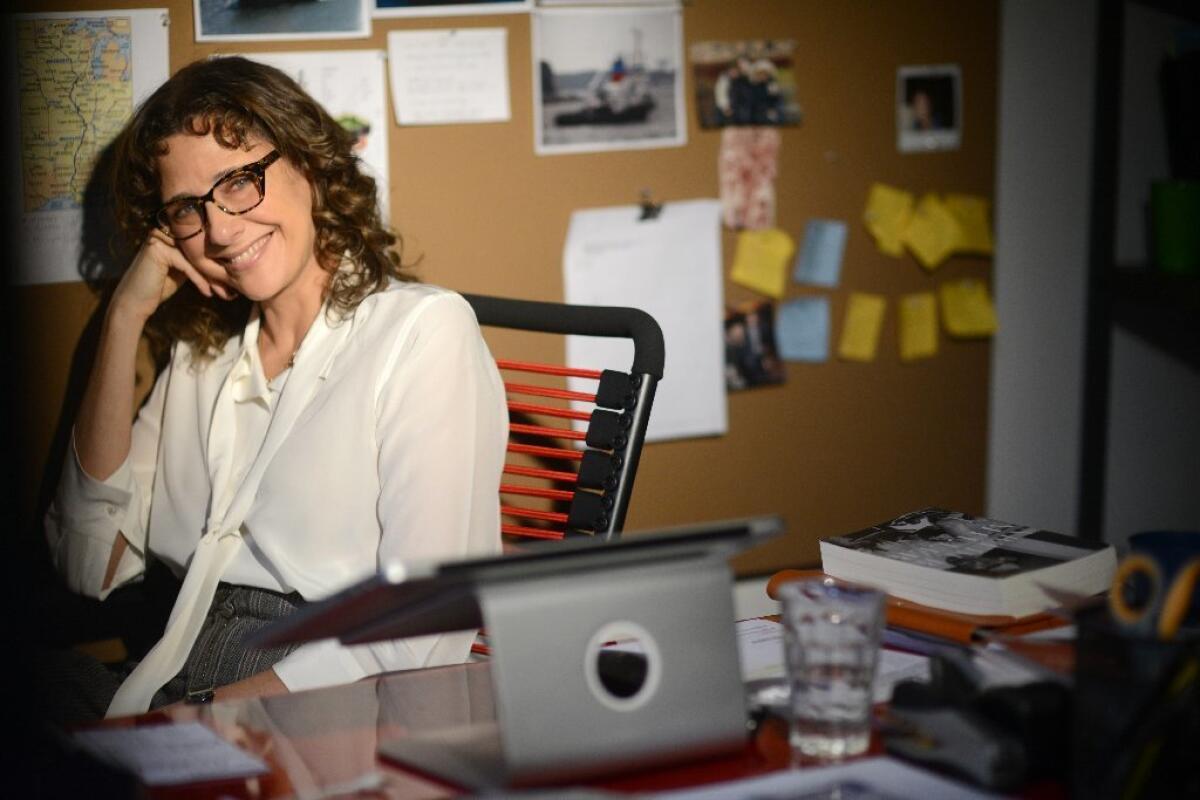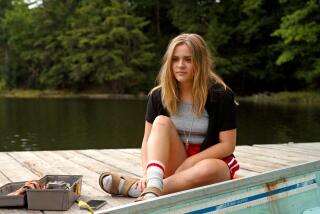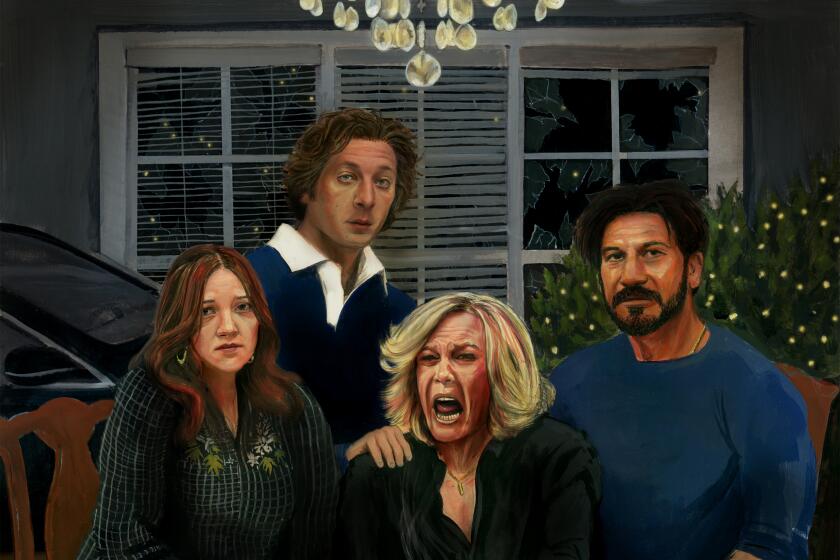‘Maggie’s Plan’ takes its inspiration from the screwball romantic comedies of the ‘30s, ‘40s

In 2012, I was on the prowl for something funny — an article, a book, a short story — to build a script around. I had just moved back to the city [New York] with my family, was freshly in love with the place, and was burned out after writing a novel, “Jacob’s Folly,” about a reincarnated Jewish housefly. I needed a leg up.
Karen Rinaldi is one of my dearest friends. Knowing of my plight, she emailed me a single story thread of a book she was working on, “The End of Men.” As I read the chapters, it felt like finding the perfect snack in the refrigerator at 2 in the morning when you’re starving, yet don’t know quite what you want. The premise she’d concocted was “what happens when you realize you want to return your husband to his ex-wife?” I was hooked from the first bite.
This nugget was reminiscent of my favorite films from the ’30s and ’40s by Howard Hawks, Ernst Lubitsch and Billy Wilder — screwball romantic comedies about serious things, often resulting in a remarriage — films fueled by whip-smart women whose razor sharp dialogue did not seem sinister or unfeminine because beneath their intellect beat hot, womanly hearts filled with passion and confusion.
They were complex people who sometimes did naughty things for good reasons — just like Maggie does. And I thought, “Maybe I can breathe new life into that old form.” I showed the chapters to Damon Cardasis and Rachael Horovitz, who, as producers, would become sounding boards for the coming drafts. Now I needed to find a way of making Karen’s chapters my own.

Maggie’s Plan
The original Maggie was a somewhat worldly, saucy character, a publicist for a maternity lingerie company. I changed her into more of an innocent bumbler, someone so inherently ethical that even though she becomes a homewrecker and then after four years of marriage proceeds to try to stuff the husband she stole back into his old marriage, her actions are fired by her own rather eccentric brand of morality; her purity makes her disarming.
I spent hours and days with Greta Gerwig, talking about every aspect of Maggie’s character. These mind-melding sessions were less about dialogue and more about details of habit and inner life. For example, neither of us remembers who suggested that Maggie should be a Quaker. That choice came out of a conversation about her spirituality, and a hunch I had that her spiritual background could be the key to her eccentric and sometimes infuriating need to live truly, whatever the cost.
When Julianne Moore felt that Georgette should be seen working as an academic, I responded by constructing a scene in an auditorium early in the film in which Georgette and John have a marital spat cloaked in the trappings of high-flown academic debate — a scene inspired by Spencer Tracy and Katharine Hepburn playing lawyers hashing out their marital troubles in court in “Adam’s Rib.” Julianne and I had hilarious discussions about the accent she would adopt, deciding on Danish over Swedish (too sing-songy) or German (too much baggage). Julianne added a speech impediment, which made her accent what one critic called “a cross between Marlene Dietrich and Elmer Fudd.”
One of my favorite moments in the film is a sign in Canada reading, ‘A Warm Quebecois Welcome to the Association of Ficto-Critical Anthropologists!’ ”
— Rebecca Miller
The dialogue itself I treated like a musical score, listening for rhythms and changes in tone. Needing a “Greek chorus” to voice the audience’s outrage at Maggie’s crazy plans, I gave Maggie an ex-boyfriend, the contentious, loving Tony, and his tough choreographer wife, Felicia. I put them all in the world of academia, and once I realized that such a thing existed, I made John and Georgette “ficto-critical anthropologists.” One of my favorite moments in the film is a sign in Canada reading, “A Warm Quebecois Welcome to the Association of Ficto-Critical Anthropologists!”
So in a sense, in the final rewrite, each actor was an advocate for his or her own character in terms of truthfulness.
Karen’s book has a bracing, tough feminist bent to it. Implicit within it is the question — now that women can grow babies without partners and be financially independent, what is a man for? My first draft had a speech in it in which Maggie said, in non sequitur defense of her plan to have a baby by herself, “In California, they’ve grown nurse sharks in tanks with only the mother, using sperm from stem cells.” And her friend Tony asks her, “What does that have to do with you? Are you planning on having a nurse shark?” My challenge, in writing “Maggie’s Plan,” was to find the romance within this hyper-modern worldview.
See the most read stories this hour »
ALSO:
‘Maggie’s Plan,’ a sericomic take on messing with fate
On Writing: It can get tricky when your characters are smarter than you, as in ‘Arrival’
On Writing: ‘Toni Erdmann’ is in a sense autobiographical, except for that naked party
More to Read
From the Oscars to the Emmys.
Get the Envelope newsletter for exclusive awards season coverage, behind-the-scenes stories from the Envelope podcast and columnist Glenn Whipp’s must-read analysis.
You may occasionally receive promotional content from the Los Angeles Times.






